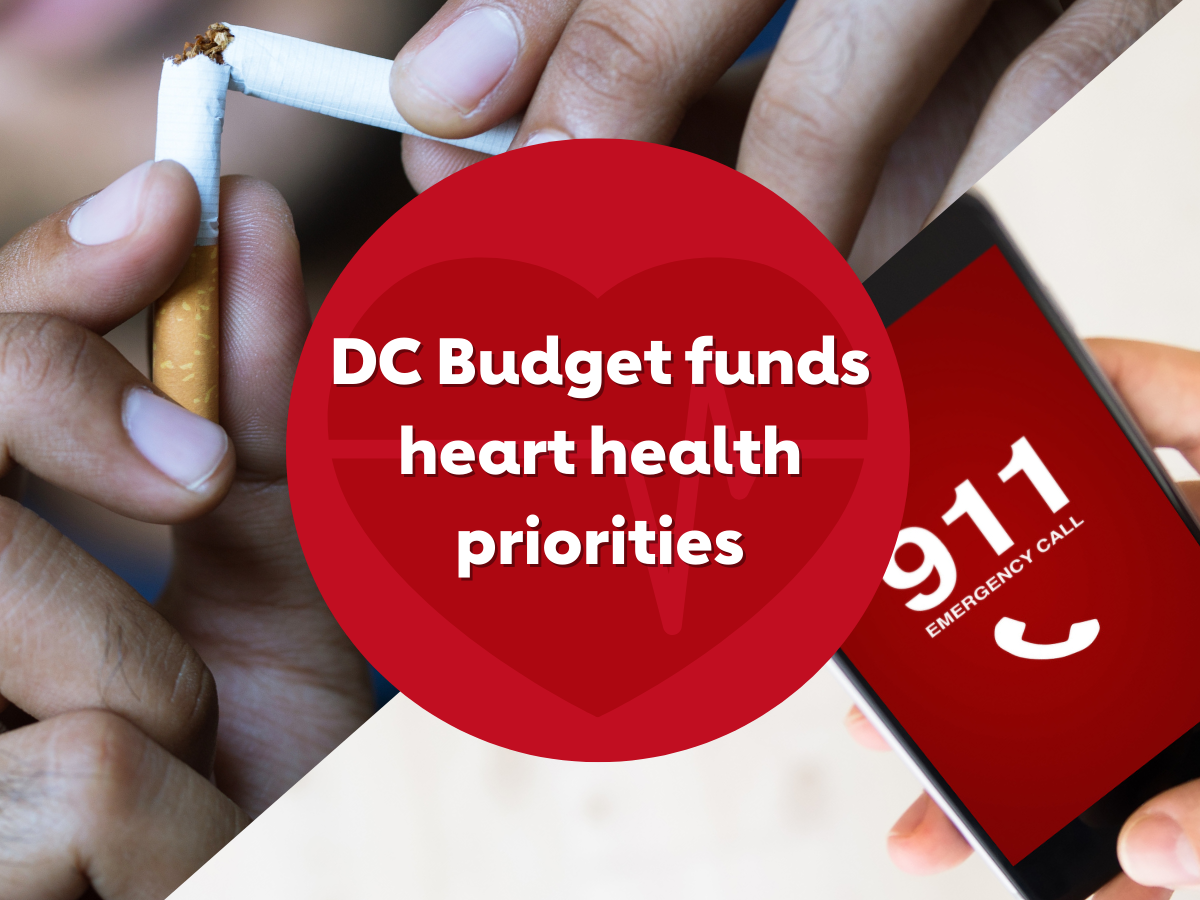On May 24, the DC Council unanimously passed the District’s FY23 budget and approved funding for important heart health priorities. The budget includes nearly $3 million to fund the District’s law ending the sale of flavored tobacco in DC, and close to $100,000 for a Telecommunicator CPR (T-CPR) program. Funding will take effect with the new fiscal year on October 1.
Protecting the next generation from being hooked by Big Tobacco.
Today’s vote ensures the implementation and enforcement of DC’s historic flavored tobacco law passed in June 2021.
 “Flavored e-cigarettes have caused youth tobacco rates to skyrocket with nearly 97% of youth e-cigarette users today consuming flavored products. This law protects our children from being hooked by Big Tobacco and safeguards the current and future health of our community,” Dr. Federico Asch, president of the American Heart Association (AHA) Greater Washington Region Board of Directors and cardiologist at MedStar Health said. “We thank the DC Council for funding and implementing this historic legislation.”
“Flavored e-cigarettes have caused youth tobacco rates to skyrocket with nearly 97% of youth e-cigarette users today consuming flavored products. This law protects our children from being hooked by Big Tobacco and safeguards the current and future health of our community,” Dr. Federico Asch, president of the American Heart Association (AHA) Greater Washington Region Board of Directors and cardiologist at MedStar Health said. “We thank the DC Council for funding and implementing this historic legislation.”
Today, 1 in 4 high school-age kids report using tobacco, and most started with flavored products. With more than 15,000 flavors designed to entice younger consumers, prohibiting the sale of flavored products is essential to ending teen tobacco use, advancing health equity, and strengthening the health of current and future generations.
Saving more lives in DC through T-CPR.
The 2023 budget also provides funding for evidence-based T-CPR training of DC’s 911 call takers. Each year, 350,000 Americans experience an out-of-hospital cardiac arrest (OHCA), and only 1 in 10 survive.
A properly trained 911 call taker can mean the difference between life and death when a cardiac arrest occurs. DC’s T-CPR policy will ensure call takers are equipped to provide CPR instructions over the phone, empowering bystanders to begin lifesaving compressions and more than doubling a person’s chance of survival.

“911 call takers are true first responders and a critical link in the cardiac arrest chain of survival. T-CPR allows bystander CPR to begin. It works by keeping the brain and heart alive until EMS arrives to provide defibrillation and other vital interventions. Simply put, T-CPR saves lives,” said AHA Greater Washington Region Board member Dr. Bryan O. Buckley. “I used CPR to save a life last August and am incredibly thankful to the DC Council for funding T-CPR to save even more people in our community.”
Passage and funding of flavored tobacco and T-CPR legislation is thanks to the leadership of DC councilmembers Mary Cheh, Charles Allen, Vincent Gray, and all those who voted to support and implement these policies. Join us in thanking the DC Council for supporting longer, healthier lives in our community!
